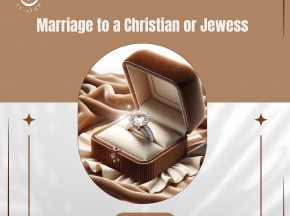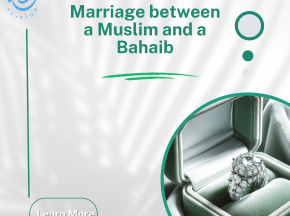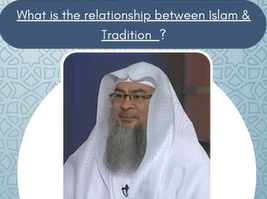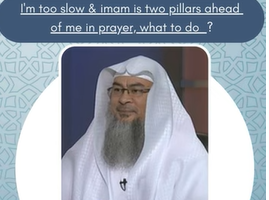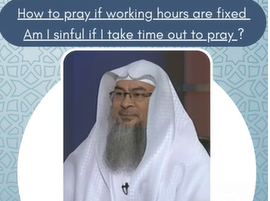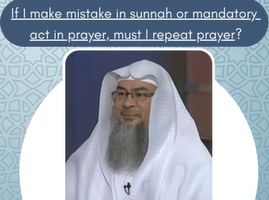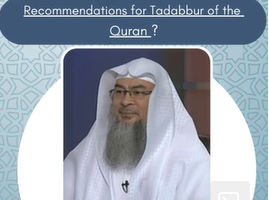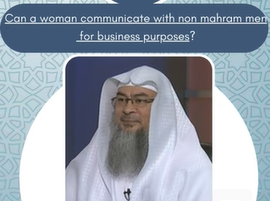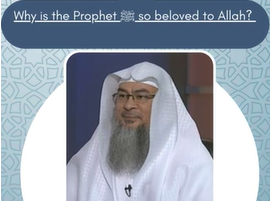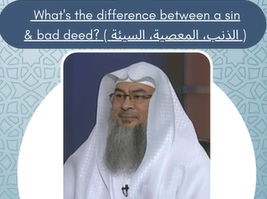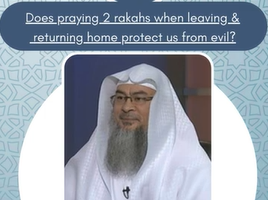content of level
Eating Food Mixed with Traces of Pork
If a Muslim is certain that the food has been contaminated with pork, it is not permissible to eat unless it is washed. If he is not certain then it is permissible to eat. This is the view of the Permanent Committee for Research and Fatwa and the late Shaikh Muhammad ibn Uthaymeen, as well as other contemporary scholars.
Food Containing Small Quantities of Forbidden Products
If these substances are small in quantity and they get changed through chemical reaction so as not to exist on their own, acquiring a new description or name, then their status changes and that will not affect the permissibility of the food or drink. This is the view of the late Shaikh Muhammad ibn Uthaymeen and a number of contemporary scholars.
The Dowry Paid by the Wife
This is a very bad tradition and an abominable deviation. It is contrary to the divine book, the Prophet’s tradition and the unanimous view of scholars. It is obligatory in Islam that the husband should pay his wife a dowry, or mahr. For various reasons, including men’s unwillingness to tie themselves to a marital relationship, women in Western countries may resort to this practice. The Islamic Fiqh Council of the Muslim World League and Majallat al-Buhuth al-Islamiyyah, (i.e. Journal of Islamic Research), have both discussed this issue.
Marriage to a Christian or Jewess
The majority of scholars, of olden days and contemporary times, agree that it is permissible for a Muslim man to marry a woman who follows a divine religion. However, some people who belong to Christianity and Judaism declare themselves atheists. In addition, fornication and adultery are commonplace in their societies to the extent that the majority of people do not disapprove of it. Indeed, those who do not practise fornication before marriage are considered odd. In view of all this, contemporary scholars adopt more restrictive views on the matter. Here are some of their fatwas.
Marriage between a Muslim and a Bahaib
Muslims are unanimous that a Muslim woman may not marry a non-Muslim. It is also universally agreed that Bahais are unbelievers. As such, they may not marry Muslim women. Many scholars and authorities have outlined their ruling on this question.
Children nowadays are troublesome, how do we rectify this
Children nowadays are troublesome, how do we rectify this
Can I pay bribe to get into an Islamic school
Can I pay bribe to get into an Islamic school
What is the relationship between Islam & Tradition
What is the relationship between Islam & Tradition
I'm too slow & imam is two pillars ahead of me in prayer, what to do
I'm too slow & imam is two pillars ahead of me in prayer, what to do
Telling seller the item is low value while telling buyer its high value to make profit permissible
Telling seller the item is low value while telling buyer its high value to make profit permissible
How to pray if working hours are fixed Am I sinful if I take time out to pray
How to pray if working hours are fixed Am I sinful if I take time out to pray
If I make mistake in sunnah or mandatory act in prayer, must I repeat prayer
If I make mistake in sunnah or mandatory act in prayer, must I repeat prayer
Recommendations for Tadabbur of the Quran
Recommendations for Tadabbur of the Quran #assim assim al hakeem
Can a woman communicate with non mahram men for business purposes
Can a woman communicate with non mahram men for business purposes_ #assim assim al hakeem
Why is the Prophet ﷺ so beloved to Allah?
Why is the Prophet ﷺ so beloved to Allah?
Can a woman travel without mahram to a city that is 40 - 50 minutes away?
Can a woman travel without mahram to a city that is 40 - 50 minutes away?
What's the difference between a sin & bad deed? ( الذنب، المعصية، السيئة )
What's the difference between a sin & bad deed? ( الذنب، المعصية، السيئة )
Why did Allah create the disbelievers if they are going to Hell anyway?
Why did Allah create the disbelievers if they are going to Hell anyway?
Does praying 2 rakahs when leaving & returning home protect us from evil?
Does praying 2 rakahs when leaving & returning home protect us from evil?
AI helps me complete my coding program that is in my thoughts, is it apostasy
AI helps me complete my coding program that is in my thoughts, is it apostasy




